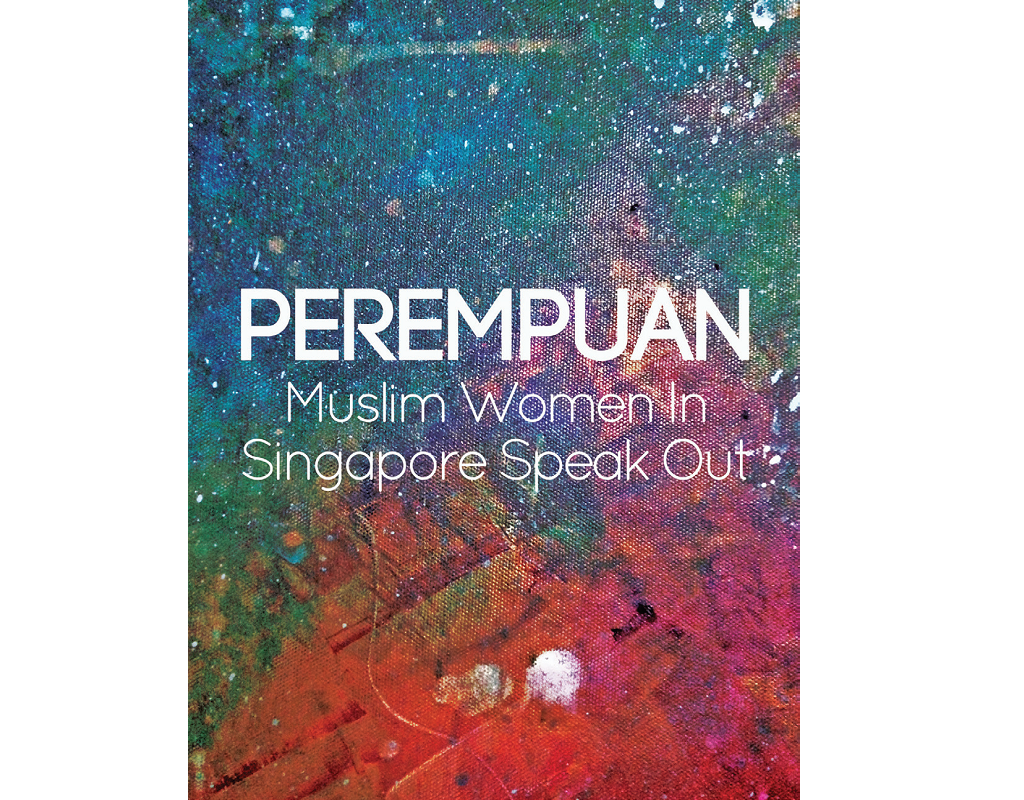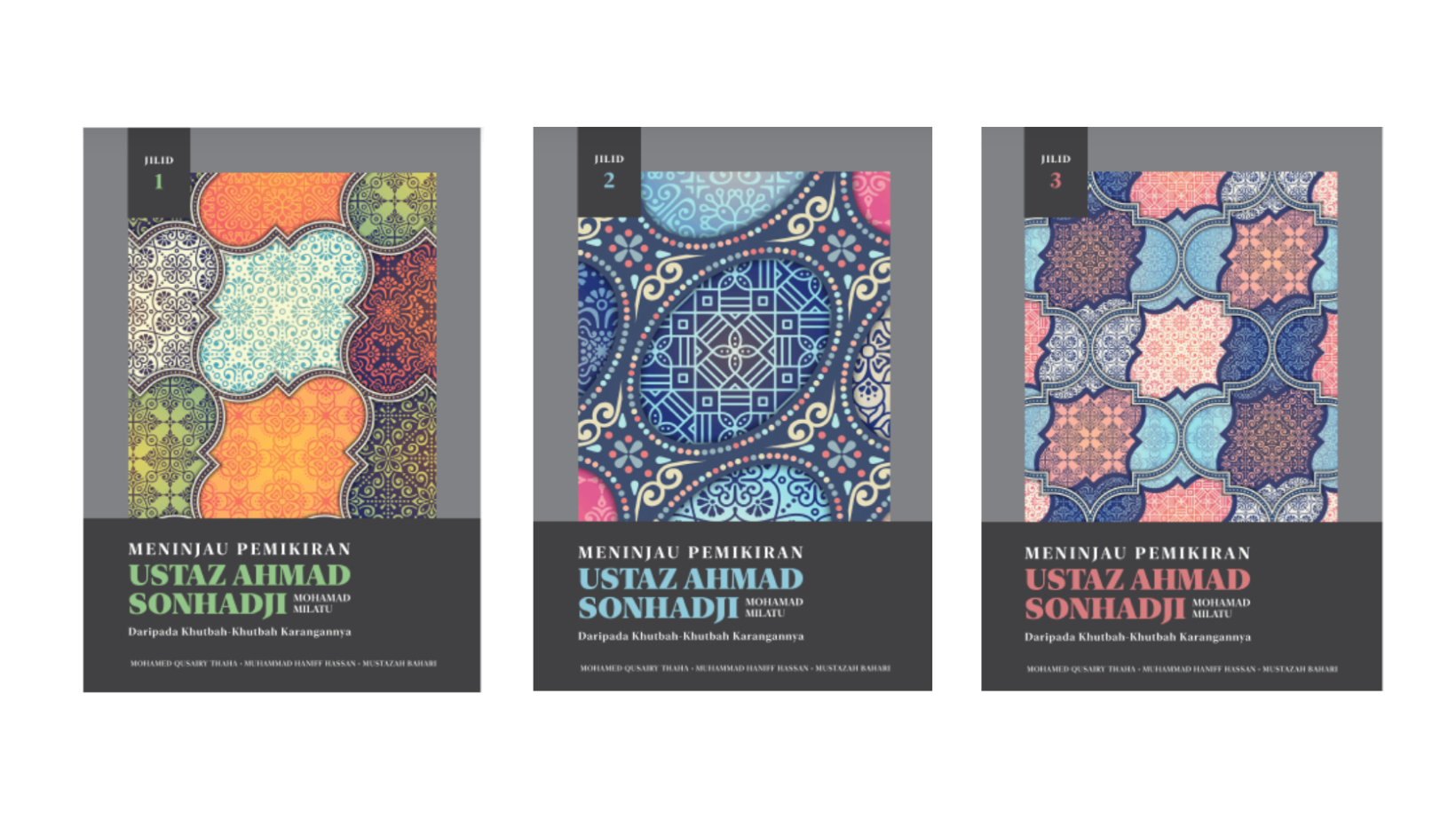The anthology, Perempuan: Muslim Women In Singapore Speak Out, published late last year, is the first of its kind in Singapore. It showcases the diverse voices of Malay/Muslim women, who speak out about their experiences and struggles in navigating cultural and religious expectations within the community. The book is an effort by the Gender Equality IS Our Culture (GEC) programme that seeks to advocate for more gender-equitable interpretations of culture and Islam for women in Singapore.
Historically for women, the act of speaking up and out has not been a benign one, especially not when you’re a Malay/Muslim woman. Associate Professor Maznah Mohamad explains this best in the book’s foreword when she says:
“Being Muslim and female in Singapore has its unique existential quality. The writers imply that they are trapped within two, or even three worlds. The modern Singapore promises individual liberty, yet as daughters, sisters and mothers within the Muslim home, women are not expected to express their true desires and will. But the disquiet is not just about the home forcing a Muslim-female identity upon one’s subjecthood but also about a radicalised society profiling the self through the blinkers of the Malay-Muslim stereotype.”
The stories in the anthology are for the most part personal, revolving around the themes of body image, sexuality, and the experiences of resisting stereotypes. There is a pervading sense of ache and loss at the lives, opportunities, and dreams the women have felt they had to sacrifice, or the extent to which they had to minimise and shrink their own wants due to gendered expectations.
PASSION AND EDUCATION
In “Crossing the Ocean, Crossing the Boundaries”, Azura writes of how she received a scholarship to study in Canada. Instead of praise for her achievement, her questioning aunts asked her mother, “Shouldn’t the boys be the one to go? She’s still too young and there is not much point in her going abroad”.
This dismissal of a girl’s achievement on gendered terms is again seen in “Why?” by Nazihah Ramli, who was told that engineering is not for girls. Disappointed by her parents’ refusal, she asks, “How does an education path have a gender?”
Along the same vein, some stories reveal difficulties women face in pursuing their artistic passions. In “Call Me Ham”, we read about how the writer’s mother abandoned dancing out of “respect” for her husband. With her mother’s history lingering in the background, Ham recounts her own struggles in repressing her love for theatre as she held herself back from taking on roles and acting on stage due to the negative perceptions held in her family for the art. Ham’s struggle is mirrored in “The Stage” where the writer S.A.Y, a dancer, faces judgement about her passion and her boyfriend even asks her not to mention it to his mother. Her fear of being seen by her boyfriend and mother during a performance made her unable to go on stage.
In these stories, we see how the writers’ accomplishments and passions, whether in the academic or artistic field, are disregarded for upturning traditional notions of ideal femininity. One wonders how many brilliant potential engineers the community loses when it discourages girls from entering the field, or how accomplished artistic practitioners like Ham and S.A.Y could be if they could practise their art without feeling shame and guilt.
MANAGING IMAGE
Body image also figures strongly in the anthology. In “You Have to Lose Weight”, Huda K. writes, “When you grow up heavy, you get very familiar with one phrase. ‘You have to lose weight’.” You will hear it from others before saying so yourself. In “Eaten Up”, Atifa Othman charts the various ways her struggle with body image leaks into moments in her life: during a scuba diving session, or brief moments when family members drop casual, hurtful remarks about her weight.
The body is also policed on bases of modesty, whether it is the tussle between mother and daughter over whether her clothes are modest enough (Zarifah Anuar’s “Armpits, Breasts, and Vulva”) with the recognisable image of a mother tugging at her daughter’s clothes appearing in multiple stories, or realising that hair and how its worn can be infused with political and religious meaning (Fadiah Johari’s “A Hairy Situation”). Three writers even take on the topic of female circumcision, questioning both its necessity and scientifically disproven justifications of reducing libido and improving cleanliness.
There is a kind of quiet violence in the extent that the female body is managed and controlled, not just by institutions and patriarchs, but even by other women. Muslim women are at times taken to represent the whole community when all they should be representing is themselves. This of course happens outside the community too. In “A Muslim Woman’s Guide to the Workplace”, Raudah recounts hilarious snippets of conversations with her non-Muslim colleagues who seem to enjoy dishing out stereotypes. Of course, these are moments of microagressions, and Raudah calls on Muslim women to carve their own space in an environment where others often speak for you, or have decided what your identity seems to automatically mean.
DOUBLY MARGINALISED VOICES
LGBT issues remain a contentious topic in the community, with the dominant consensus being that it is unacceptable in faith. These personal stories reveal the consequences of this prevalent belief when it is sharpened into normalised prejudice and even hate speech.
In “Allah Take The Wheel”, Joyene Nazatul, who introduces herself as a lesbian who dresses in a masculine way and often passes as a man, recounts a harrowing experience in a cab where the driver questions her in a hostile manner about the way she dresses. She also recounts a driving teacher who said that he would have put her through “corrective” rape if he was younger to ensure she would like men. These experiences made her fear for her life. She asks, “How many other people suffer aggressions like this, every day, and never say anything about it?”
Violence is a common occurrence in the stories submitted by gay contributors, with Orchid Blue writing that she fears being open about her orientation due to expected violent backlash. Zuleiha in “Cover Up” tells of a classmate threatening her with blackmail if she does not change her orientation. Earlier, in a religious classroom setting, Zuleiha had sat silent as a teacher asked the students if they knew anyone who was homosexual — “No one raised their hand that day. Little did they realise that there was such a person sitting in the class”. This same shame and silence is also detailed in the story “Human” by Oman.
What is common for these LGBT writers is the desire not even to be accepted, but to simply be regarded as equally human, and to not be recipients of hate. There is also in them a marked comfort that is derived from the faith. Oman thinks of God as a compassionate, supreme being that is more accepting than the followers.
Zuleiha finds comfort in the act of wudhu (ablution), although it saddens her that each time it makes her feel like the waters are washing away the guilt and sin she feels for simply being herself. In these stories, we see how LGBT women try their hardest, while quietly taking in verbal violence and hatred, to foster the love in religion for themselves that has not been extended to them from others.
EXPOSURE AND NOT ERASURE
The importance of the book cannot be stated enough. For the women whose voices are so marginal that some of them have to use a pseudonym in their submissions, it is a brief relief from isolation and from having to silence one’s self within normative society. The demand of conformity, the punishment of any kind of divergence from the norm is a kind of violence that is inherently unjust, but some find to be sanctioned and therefore, just.
Perempuan seeks not to theologise or propose a new way of understanding Islam. It is merely a collection of personal stories and experiences, revealing insight into what women go through when faced against the tide of expectation and demands to conformity. Many of these voices have known silencing and dismissal. Denying the existence of these voices will only perpetuate the kind of persecution we do not want for our daughters. So rather than punish their speaking, the community should come together, listen, and try to understand their experiences.
Diana Rahim read English at Nanyang Technological University (NTU) and is currently looking to pursue a master’s degree in the same subject. She is interested in issues pertaining to Islam and gender. She volunteers with Gender Equality IS Our Culture (GEC) and contributes to the blog ‘Beyond the Hijab?’.









